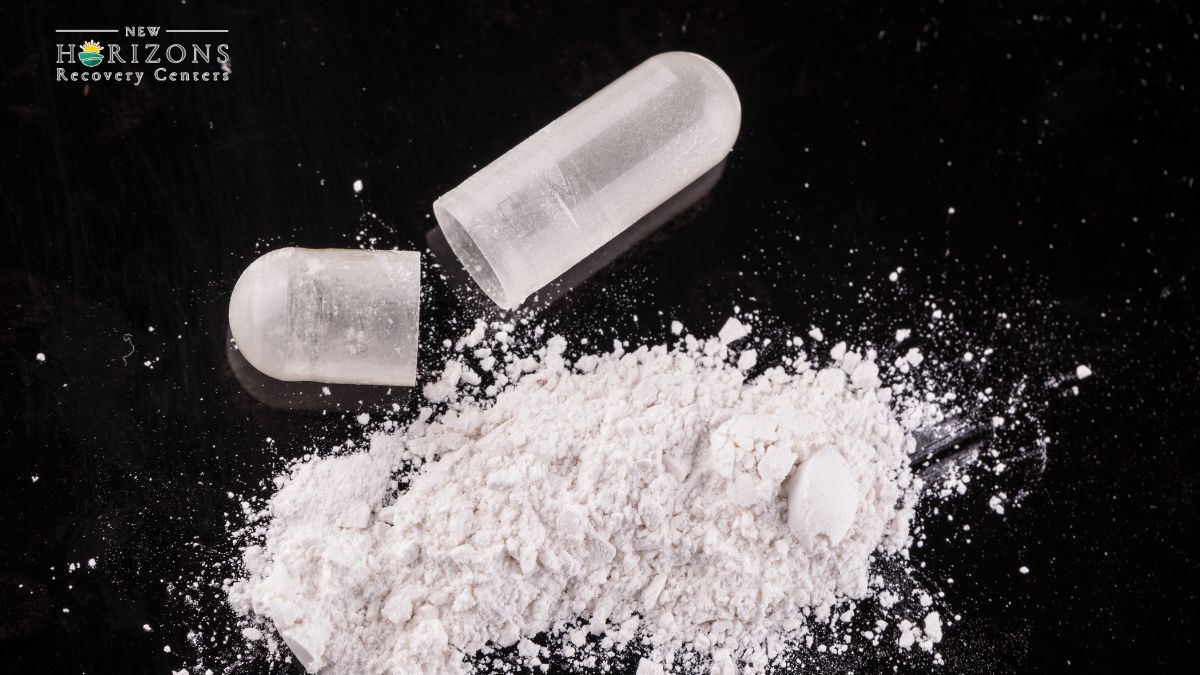Advances in Addiction Treatment
In the realm of addiction treatment, there has been a significant focus on advancing prevention interventions and exploring new pharmacological targets to enhance treatment efficacy and outcomes. These advancements reflect the progress being made in the field of addiction treatment, offering hope for individuals struggling with substance use disorder (SUD).

New Prevention Interventions
Accelerating developments in new prevention interventions are paving the way for more effective strategies to combat addiction. Studies are continually unveiling promising pharmacological targets and nonpharmacological therapies that are reshaping the landscape of addiction treatment. By targeting various aspects of addiction vulnerability and addressing risk factors early on, these prevention interventions aim to intervene before the onset of addictive behaviors, thus potentially reducing the overall burden of addiction.
Emerging Pharmacological Targets
The field of addiction treatment is witnessing a surge in research and innovation focused on identifying new pharmacological targets for combating substance use disorder. Advances in neuroscience are providing a better understanding of the addiction process, leading to the exploration of novel treatment options. This includes the development of medications with diverse indications, vaccine studies, and neuromodulation techniques aimed at enhancing treatment efficacy for SUD.
Recent research in the field underscores the importance of developing brain-based biomarkers, known as neuromarkers, for substance use disorder. Utilizing advanced tools like neuroimaging MRI studies, researchers are striving to identify specific neural signatures associated with addiction, which could revolutionize diagnostic and treatment approaches in the future.
The evolution of addiction treatment extends beyond pharmacological interventions to encompass a holistic approach that integrates non-pharmacological therapies, such as psychotherapies and brain stimulation methods. By combining medication with these innovative therapeutic modalities, treatment providers are aiming to maximize treatment outcomes and address the complex nature of substance use disorder [3].
The ongoing advancements in neuroscience and addiction treatment underscore a transformative period in the field, offering renewed hope for individuals grappling with addiction and paving the way for more personalized and effective treatment approaches.

Diverse Treatment Approaches
In the realm of addiction treatment, a variety of approaches are being explored to enhance therapeutic outcomes. Among these, two significant avenues are Biological Therapeutics and Brain Stimulation Therapies.
Biological Therapeutics
Biological therapeutics encompass a range of treatment modalities that target the physiological mechanisms involved in addiction. These therapies aim to modulate the brain's chemical processes to mitigate addictive behaviors and cravings. One notable advancement in this domain is the exploration of deep brain stimulation for individuals with severe, treatment-resistant opioid use disorder.
Brain Stimulation Therapies
Brain stimulation therapies offer a novel approach to treating addiction by directly influencing neural activity in key brain regions related to reward processing and addiction. Among these therapies, deep brain stimulation is gaining attention for its potential to address drug addiction by modulating the release of dopamine in the brain.
By delving into Biological Therapeutics and Brain Stimulation Therapies, addiction treatment is evolving towards more targeted and innovative strategies. These diverse approaches offer new avenues for addressing addiction at its biological roots, emphasizing the potential for personalized and effective interventions in the field of addiction treatment.

Behavioral Therapies
When addressing addiction, behavioral therapies play a significant role in understanding and treating individuals struggling with substance abuse. Two critical aspects of behavioral therapies in addiction treatment are the neurobiological basis of addiction and identifying addiction risk factors.
Neurobiological Basis of Addiction
Addiction is underpinned by a complex interplay of neurobiological processes within the brain's reward and stress systems. Substances of abuse, by hijacking the brain's reward system, stimulate the release of dopamine, a neurotransmitter crucial in reinforcing substance use. Moreover, other neurotransmitters like opioids, cannabinoids, GABA, and serotonin also contribute to the euphoric effects and neuroadaptations that foster addiction.
Understanding addiction through a neurobiological lens involves recognizing the three-stage addiction cycle framework: binge/intoxication, withdrawal/negative affect, and preoccupation/anticipation. This framework illustrates the neuroadaptations in corresponding brain regions and functional circuits that drive addictive behavior. Advanced imaging techniques have further enhanced our comprehension of addiction by providing insights into brain changes linked to addictive behaviors.
Addiction Risk Factors
Identifying addiction risk factors is essential in developing targeted and effective treatment approaches. Stress, a potent trigger for drug-seeking behavior, interacts with the brain's reward pathways to reinforce addictive tendencies via negative reinforcement. Neurotransmitters such as corticotropin-releasing factor (CRF) and dynorphin play pivotal roles in perpetuating negative emotional states that perpetuate substance abuse.
Additionally, chronic drug use can lead to alterations in dopamine receptors, affecting reward processing, motivation, and inhibitory control in the brain. By recognizing and understanding these addiction risk factors, healthcare providers and researchers can tailor behavioral therapies and interventions to address the underlying causes of addiction and support long-term recovery.
By delving into the neurobiological basis of addiction and identifying addiction risk factors, behavioral therapies can be tailored to address the intricate interplay between brain processes and addictive behaviors. These insights pave the way for more effective treatment strategies, personalized interventions, and improved outcomes for individuals grappling with addiction.
Cutting-Edge Research

When it comes to advancements in neuroscience and addiction treatment, one of the most intriguing areas of study is the Deep Brain Stimulation (DBS) for addiction. Let's delve into the ongoing research on the Deep Brain Stimulation study, focusing on the early results and promising outcomes.
Deep Brain Stimulation Study
Deep Brain Stimulation (DBS) is a groundbreaking approach currently under evaluation for patients with severe, treatment-resistant opioid use disorder. This innovative method aims to target and alter brain circuits underlying drug addiction by utilizing precise electrical energy from an implanted device.
The principal investigator behind this research study, Dr. Ali Rezai, has been pioneering the use of DBS for addiction. The study focuses on patients with chronic, severe opioid use disorder who have not responded to traditional treatments, including those who have experienced multiple overdoses. By implanting a device to deliver targeted electrical stimulation to specific brain areas, the study aims to modulate the neural pathways associated with addiction.
Early Results and Promising Outcomes
Early results from the DBS study on opioid use disorder have shown encouraging outcomes. Some participants have experienced significant improvements, including long-term abstinence from opioids, enhanced overall health, and a successful transition to roles as peer recovery coaches.
The results of this study pave the way for a deeper understanding of the potential of DBS in addiction treatment. By targeting the neural circuitry implicated in addiction, DBS offers a novel approach for individuals who have not achieved successful recovery through conventional methods. The positive outcomes observed in early stages of the research provide hope for those struggling with severe opioid use disorder and offer new possibilities for treatment beyond traditional therapies.
As researchers continue to explore the effectiveness and safety of DBS in addiction treatment, the insights gained from this study may revolutionize how we approach and manage addiction disorders. The innovative use of technology like DBS highlights the continuous progress in neuroscience and addiction treatment, offering new pathways towards effective interventions for individuals battling with addiction.
Technological Advancements

In the realm of neuroscience and addiction treatment, technological advancements play a pivotal role in enhancing our understanding of addiction and facilitating more effective treatment strategies. Two significant technological advancements in this field are real-time brain chemical monitoring and electrode-based techniques.
Real-Time Brain Chemical Monitoring
At the forefront of addiction treatment innovation, researchers are harnessing the power of real-time brain chemical monitoring to gain insights into the intricate workings of the brain during addiction and recovery. By measuring critical neurotransmitters like dopamine and serotonin in real time, scientists can observe the dynamic changes occurring in the brain as addiction progresses and treatment interventions take effect.
Researchers at Mayo Clinic, including biomedical engineer Hojin Shin, Ph.D., are spearheading the development of advanced techniques using electrodes to achieve real-time brain chemical monitoring. This cutting-edge approach provides valuable data that can inform the development of targeted interventions and personalized treatment plans for individuals struggling with addiction.
Electrode-Based Techniques
Electrode-based techniques represent another technological advancement that holds promise in the field of addiction treatment. By strategically placing electrodes in specific regions of the brain, researchers can modulate neural activity and potentially disrupt the addictive patterns associated with substance use disorders.
The use of electrodes for neuromodulation has shown encouraging results in preclinical and clinical studies, highlighting the potential for electrode-based techniques to offer novel therapeutic avenues for addiction treatment. These techniques present a non-invasive yet powerful way to intervene in the brain circuits implicated in addiction, paving the way for innovative treatment approaches that target the neural mechanisms underpinning addictive behaviors.
As neuroscience continues to unveil the complexities of addiction at the neural level, the integration of real-time brain chemical monitoring and electrode-based techniques represents a transformative shift in addiction treatment paradigms. These technological advancements not only deepen our understanding of addiction but also open new doors for personalized treatment approaches that hold the promise of improved outcomes for individuals grappling with substance use disorders.
Future of Addiction Treatment
As advancements in neuroscience continue to expand our understanding of addiction, the future of addiction treatment is moving towards personalized treatment approaches and the implementation of policies and programs to enhance addiction care.
Personalized Treatment Approaches
Current research, as highlighted by Archives of Neuropsychiatry, delves into the neurobiological changes, genetic markers, and epigenetic alterations associated with addiction. By identifying these factors, novel targets for treatments and personalized preventive strategies are being developed to improve treatment effectiveness.
Personalized treatment plans take into account an individual's genetic predisposition, neurobiological profile, and cognitive functioning. Tailoring treatment approaches to address these specific characteristics can lead to more targeted interventions and better outcomes for individuals struggling with substance use disorders (SUD).
To explore a range of innovative treatment methods beyond traditional approaches, including psychedelic-assisted therapy and cannabinoid-based therapies, can offer new avenues for personalized treatment options tailored to an individual's unique needs.
Policy and Program Implementation
While advancements in addiction biology present promising opportunities for improved treatment outcomes, the effective translation of these findings into real-world impact requires the support of evidence-based addiction policies and programs. As discussed by NCBI, it is crucial for law and policymakers to adopt the latest advancements in addiction biology to realize the benefits in addiction treatment.
The International Society of Addiction Medicine (ISAM-NIG) is actively engaged in promoting initiatives to integrate addiction neuroscience knowledge and tools into the assessment and treatment of substance use disorders, as noted by Frontiers in Psychiatry. By bridging the gap between research and practice, these efforts aim to enhance the quality and accessibility of addiction treatment on a global scale.
By aligning personalized treatment approaches with evidence-based policies and programs, the future of addiction treatment holds the promise of more effective and tailored care for individuals grappling with substance use disorders. It is through this combined approach that we can pave the way for improved outcomes and a brighter future for addiction treatment and recovery.
References
[2]:
[3]:
[4]:
[5]:
[6]:





-ink.jpeg)
-ink.jpeg)
